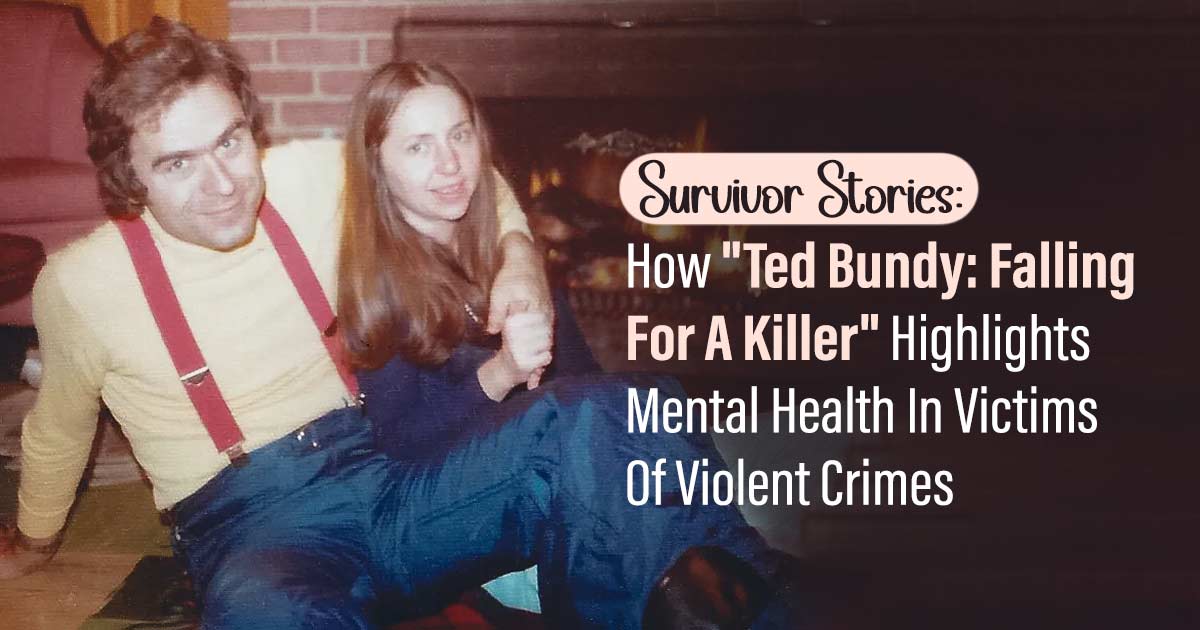- Amazon’s Ted Bundy: Falling for a Killer revisited serial killer Ted Bundy’s story from his victims’ perspective.
- It contained chilling interviews with Bundy’s former long-term girlfriend and the relatives of the women who died by his hands.
Serial killers have always enjoyed fascination, thanks to the gruesomeness of their heinous deeds. The year 2022 saw a resurgence in the interest in them, thanks to a steady string of films and documentaries about the most notorious serial killers.
The 1970s’ American serial killer Ted Bundy’s Netflix documentary Conversations with A Killer: The Ted Bundy Tapes contained the chilling recordings of Bundy’s confessions to dozens of murders. It’s release rejuvenated the horrors of sexual violence that Bundy perpetrated against his staggering count of 30 or more victims!
Now, an Amazon docu-series, Ted Bundy: Falling For A Killer, has emerged, aiming to shed light on the saga from a different perspective—through the voices of survivors, victims’ family members, Ted Bundy’s girlfriend Elizabeth Kendall, and her daughter Molly.
Director Trish Wood reframes Bundy’s gruesome legacy, directing our focus through the lens of gender, offering a unique vantage point.
Wood emphasizes that while Bundy’s name is etched into public consciousness, the women affected by his crimes often remain nameless. She believes it is high time these women, who bore the brunt of Bundy’s heinous acts, had their moment in the spotlight. The crimes, she notes, left an indelible impact on women’s quest for independence.
The 1970s, when these brutal killings occurred, marked a period of anticipated progress and newfound freedom for many women. However, the emergence of the threat of arbitrary, annihilating male violence shattered those aspirations and forever altered the trajectories of countless lives.
Against the backdrop of Bundy’s model-like appearance, which was accentuated when portrayed by Zac Efron in Extremely Wicked, Shockingly Evil And Vile, Wood reflects on the stark contrast between his charming façade and his depraved actions.
In the docu-series, Bundy’s charisma is discussed alongside the havoc he wreaked, as the dichotomy between his exterior and his true self is underscored.
Ted Bundy’s girlfriend Elizabeth Kendall provides an intimate glimpse into the twisted dynamics of their relationship. Her book The Phantom Prince: My Life With Ted Bundy, re-released recently, delves into their tumultuous connection that spanned five years.
In Ted Bundy: Falling For A Killer, Elizabeth articulates the magnetic draw between them, describing their union as two puzzle pieces finding their perfect fit—a spectacular coming together that defied reason.
Molly, Elizabeth’s daughter who had Bundy as a presence in her upbringing, recalls viewing him as “somewhat magical.” Her perception of him as marvelous and the delight he brought into her life highlight the complexity of his influence.
Yet, in hindsight, Molly acknowledges the unsettling nature of this admiration, acknowledging that his actions cast a haunting shadow over her once-positive perceptions.
Elizabeth Kendall speaks candidly about the profound internal turmoil she experienced while reconciling the actions of the man she once loved. She delves into the complexities of her emotions, oscillating between recalling the initial stages of their relationship and grappling with the gruesome reality of Bundy’s crimes.
The contrast between the fond memories and the horrifying truth proves mentally devastating, revealing the intense emotional struggle she underwent. She also speaks at length about her paranoia, depression, and alcoholism.
Amid her suspicions and doubts, Elizabeth’s breakthrough moment came when Bundy’s confessions validated her darkest fears. A phone call from him at 2 a.m. in February 1978 served as a pivotal turning point.
She acknowledges her initial denial, confessing to grappling with the notion that her actions of contacting the police might have inadvertently set tragic events in motion. The emotional whirlwind of love, understanding, and denial clouded her perception, making it difficult to accept the truth that Bundy was indeed guilty.
The docu-series reveals instances when Elizabeth witnessed Bundy’s darker tendencies firsthand. During a phone conversation, he confessed to a chilling attempt to murder her and Molly by blocking smoke from escaping through a chimney in her apartment, hoping to asphyxiate them.
Elizabeth contrasts this with her belief that he actually aimed to kill her when he pushed her into frigid waters from a raft. This stark revelation opens a window into Bundy’s twisted psyche, hinting at his capacity for violence.
Bundy’s hold over Elizabeth was severed after that fateful phone call, compelling her to confront the painful reality that he had indeed committed these heinous acts. The sense of realization, coupled with the subsequent exposure of his guilt, marked a turning point in her healing journey.
Today, Elizabeth finds solace in her happiness, despite the renewed interest in Bundy’s legacy, and she has managed to distance herself from the nightmarish memories that once consumed her thoughts.
Director Trish Wood reflects on the remarkable courage of the women who shared their stories in the docu-series, with survivor Karen Sparks Epley standing out as an emblem of resilience. Epley’s choice to keep her identity hidden from her children while moving forward serves as a testament to the strength and determination of individuals who refuse to be defined solely by their victim-hood.
This nuanced portrayal of women who strive to reclaim agency in the aftermath of trauma resonates deeply, highlighting the power of resilience in the face of adversity.Ted Bundy: Falling For A Killer is more than a retelling of Bundy’s gruesome actions; it’s an exploration of the women who were profoundly impacted by his malevolent choices.
By shifting the focus through the lens of gender, the docu-series invites us to empathize with the untold stories of these women, whose lives were forever altered by Bundy’s reign of terror. Through their voices, the series emphasizes the resilience, strength, and determination that enable survivors to reclaim their lives and stand tall in the face of unimaginable darkness.





















